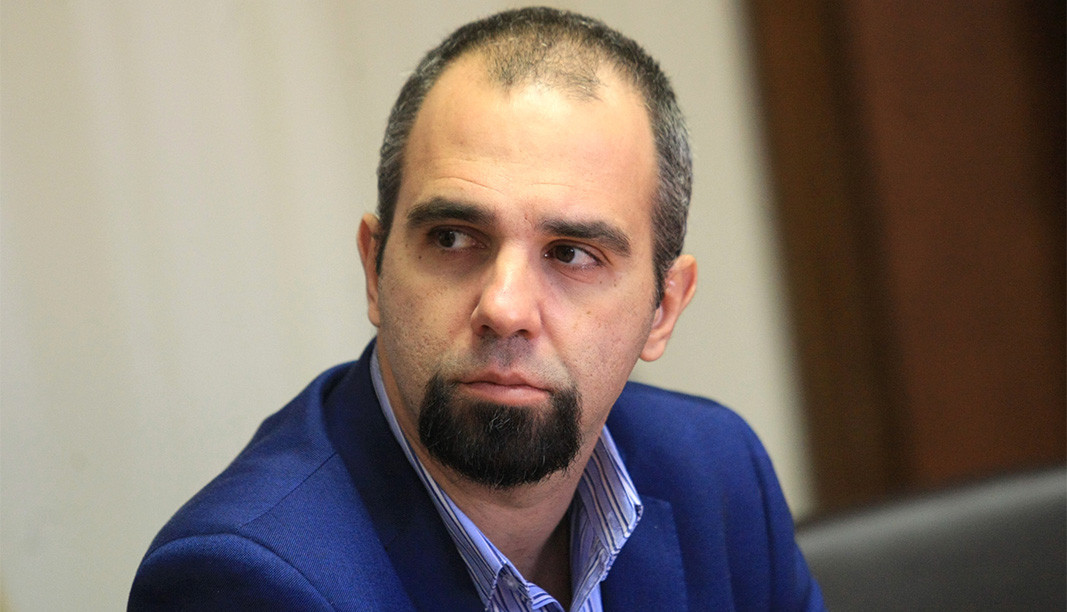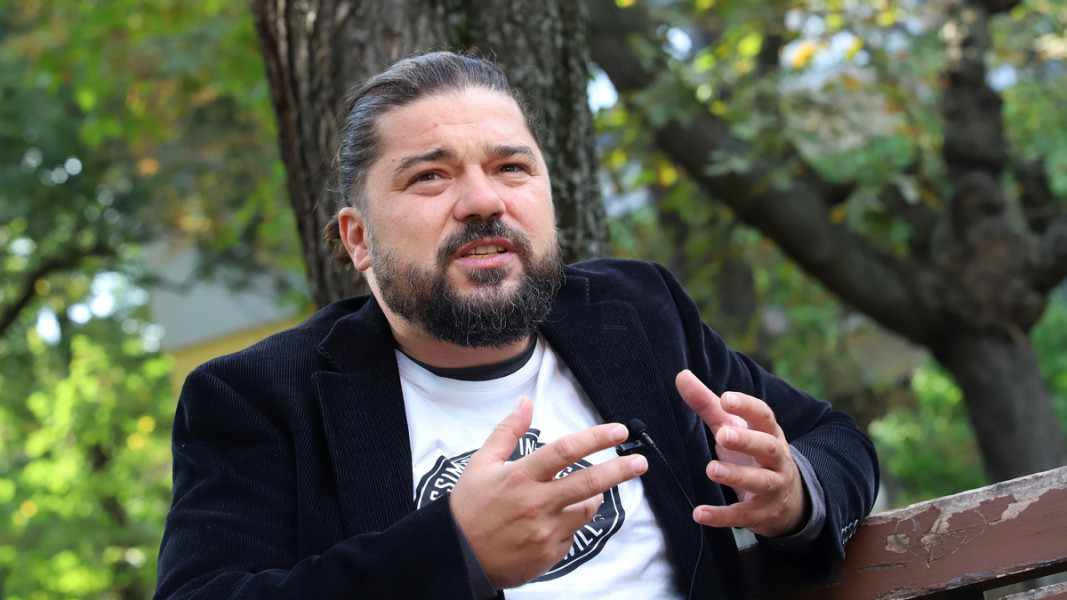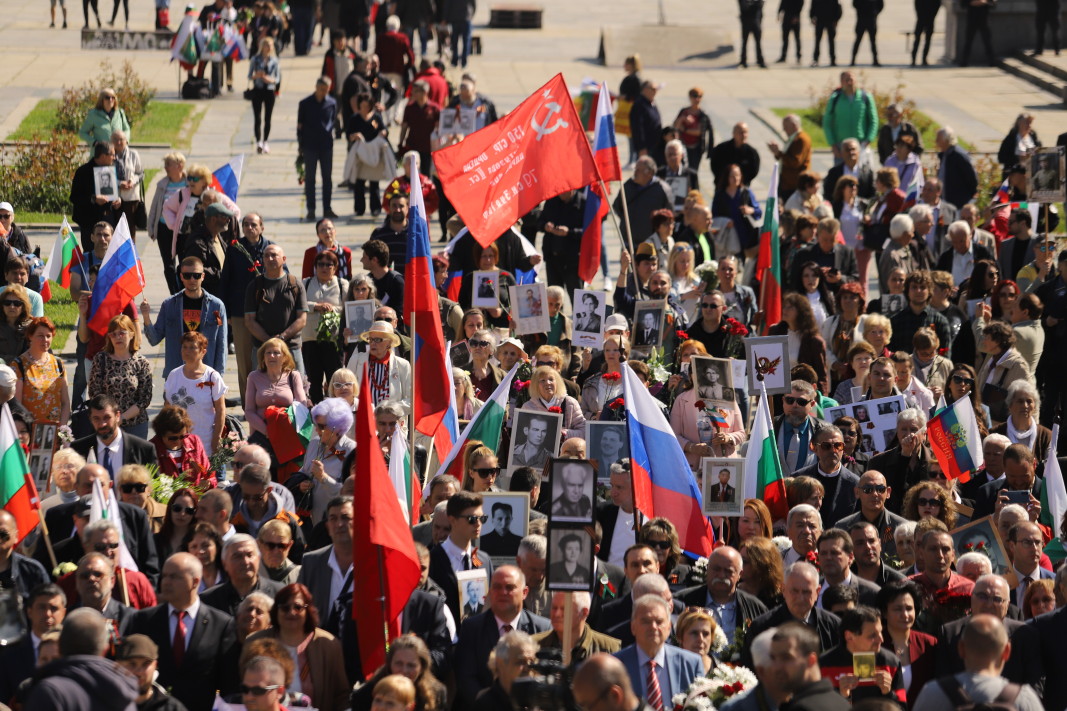May 9th this year has set dividing lines in Bulgarian society, which was previously used to celebrating Europe Day and the Day of Victory over Nazism focusing on the importance of both of them. On the one hand, Europe Day is about celebrating laying the foundations of today's European Union. On the other, the unconditional surrender of Nazi Germany, signed on the night of May 8-9 (22:43 European time; 00:43 Moscow time), is also marked as the Victory Day over Nazism, ending World War II in Europe. Both events are significant and there should be no reason for division, political scientists Parvan Simeonov and Strahil Deliiski say. In an interview with BTA, the two commented that polarized groups in Bulgarian society were noisier, but in fact a minority.
According to Parvan Simeonov, the best option for May 9 would be to give history respect and think about politics separately. “We should not project today's policy on the past. We need to have nuanced thinking."

According to Simeonov, May 8th and May 9th were the days when Nazism was defeated and at the same time May 9 is Europe Day and we must be able to separate these facts from other events. "I think we can think about and discuss these things – we can condemn Putin's aggression and still not forget that in the middle of the 20th century, the Soviet Union, the United States and Britain stood together against Nazism. We can pay tribute to the victory over Nazism, in which Bulgaria also participated during the second phase of the war and at the same time we cannot deny Europe Day," Parvan Simeonov said. According to him, this was a matter of the political elite’s wisdom.
According to political scientist Strahil Deliiski, outside the context of the war in Ukraine, it seems that the idea that Europe Day would have been impossible without Victory Day is commonly shared. However, the current war will surely lead to new dividing lines in society when it comes to May 9, Strahil Deliiski says.

"Society’s polarization regarding the war in Ukraine, is very visible but polarized groups are minorities in the society. Yes, their positions are heard loudly and they set the agenda somehow, but every poll shows that the majority of Bulgarian citizens do not need this type of polarization in order to identify as a group. Minor groups feed on polarization. The problem occurs when these minor groups have a very strong presence in media and in government institutions.”
According to Deliiski, a traditional attitude towards Russia is by no means in conflict with the clear pro-European ideas and values shared by the vast majority of Bulgarian society. "These two things are not mutually exclusive. Division occurs when these attitudes are used for political mobilization. One can have sympathy for Russia traditionally and sympathy for Europe at the same time; there is no contradiction in that. We can be anything we want, but when the choice of identity is shrunk to just two options, this is obviously propaganda."

According to the analyst, the Bulgarian society is severely divided and economic imbalances are at the heart of this division. This is because the gap between different social groups is so wide that it is a matter of a very slight "push" in order for these divisions to be "packaged" in different cultural identity frameworks.
Editor: Darina Grigorova
English: Alexander Markov
Photos: BGNES, libraryOn 16 November, we celebrate Caritas Day, when we honour the Catholic Church’s charity organisation that brings hope to those in need through care and acts of mercy . It reminds us that financial gain is not what matters most. What truly matters is..
The first museum of investment gold is welcoming visitors in Plovdiv who want to learn more about the history of money and its connection to gold – from the birth of gold, its cosmic origin, and its journey to Earth, to how this precious metal has..
The diplomas from the 11th master class in radio journalism of the Bulgarian National Radio – BNR Academy were awarded at a solemn ceremony on November 14. The lectures and practical classes in modern forms of radio journalism build on the professional..
From fear and doubts to joy and support – Bulgarians react differently to the upcoming introduction of the euro on January 1, 2026. For..
Kosovo is heading for early elections after nine months of failed attempts to form a government Kosovo President Vjosa Osmani has dissolved..
On November 21–22, 2025, the 11th edition of the Career Fair will take place at the John Atanasov Hall in Sofia Tech Park. The forum aims to support..

+359 2 9336 661
